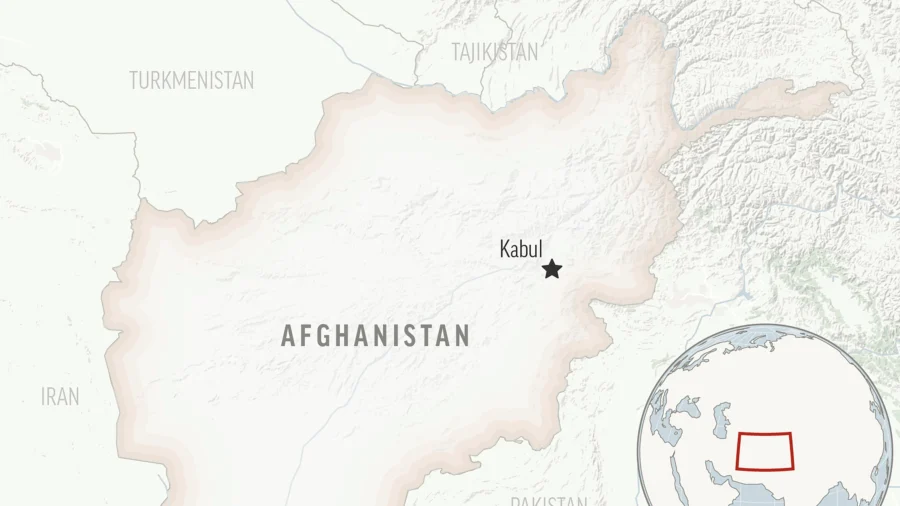ISLAMABAD—Pakistani airstrikes targeted multiple suspected hideouts of the Pakistani Taliban inside neighboring Afghanistan early on Monday, the foreign ministry said. The Afghan Taliban said the attacks killed at least eight people and prompted return fire from their forces.
The exchange, two days after seven Pakistani soldiers were killed in a suicide bombing and coordinated attack in the country’s northwest, marked an escalation that is likely to further increase tensions between Islamabad and Kabul.
The Foreign Office in Islamabad confirmed the strikes, describing them as “intelligence-based anti-terrorist operations in the border regions inside Afghanistan” and saying they targeted a splinter group of the Pakistani Taliban.
The Afghan Taliban denounced the strikes as an aggression on Afghanistan’s territorial integrity, and said later Monday their forces “targeted Pakistan’s military centers along the border with heavy weapons,” without providing details.
It was not immediately clear how deep inside Afghanistan the Pakistani jets flew for Monday’s strikes—the first since 2022, when Pakistan targeted terrorist hideouts in Afghanistan. Islamabad never officially confirmed those strikes.
Chief Afghan Taliban spokesperson Zabihullah Mujahid said three women and three children were killed in the airstrikes the district of Barmal in Paktika while two other women were killed in a strike in Khost.
“Such attacks are a violation of Afghanistan’s sovereignty and there will be bad consequences,” Afghan Taliban spokesperson said.
On Saturday, a suicide bomber rammed his explosive-laden truck into a military post in the Pakistani town of Mir Ali, a town in Khyber Pakhtunkhwa Province that borders Afghanistan, killing seven Pakistani soldiers. Troops responded and killed all six attackers in a shootout, the military said.
Pakistani President Asif Ali Zardari attended the soldiers’ funerals and vowed to retaliate, saying “the blood of our martyred soldiers will not go in vain.”
A newly formed terrorist group, Jaish-e-Fursan-e-Muhammad claimed the Mir Ali attack. Pakistani officials believe the group is mainly made up of members of the Pakistani Taliban, the outlawed Tehrik-e-Taliban Pakistan or TTP, which often targets Pakistani soldiers and police.
Muhammad Ali, an Islamabad based security expert, said army Lt. Col. Kashif Ali and Cpt. Ahmad Badar were among those killed in Mir Ali and that Monday’s airstrikes were an obvious retaliation, coming within 24 hours of Mr. Zardari’s warning.
“Pakistan’s patience for the Afghan interim government’s continued hospitality for terrorists conducting frequent attacks on Pakistan from inside Afghanistan has finally run out,” Mr. Ali said.
Pakistani Prime Minister Shehbaz Sharif visited the families of the lieutenant colonel and the captain slain in Mir Ali and paid tribute to all the soldiers killed in the attack. He did not comment on the airstrikes in Afghanistan.
Separately, the Pakistani military said security forces carried out an operation Monday in North Waziristan near the Afghan border, killing eight terrorists linked to Saturday’s attack.
The Afghan Taliban seized power in Afghanistan in 2021 as the U.S. and NATO troops were in the final stages of their pullout after 20 years of war. The Taliban takeover in Afghanistan emboldened the TTP, whose top members are hiding in Afghanistan.
The Afghan Taliban insist they do not allow the Pakistani Taliban—or any other extremist group—to use Afghanistan’s soil to launch attacks. However, the TTP has stepped up attacks inside Pakistan in recent years, straining relations between Kabul and Islamabad.
Adding to the tensions between the two countries was a move by Islamabad last year to expel Afghans living in Pakistan without valid documents. Pakistan has long hosted about 1.7 million Afghans. More than half a million fled Afghanistan when the Taliban seized power.
So far, Pakistan has expelled nearly half a million Afghans in the ongoing crackdown. Islamabad says Afghans who have refugee status have not been deported.


